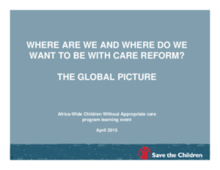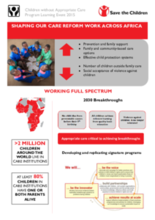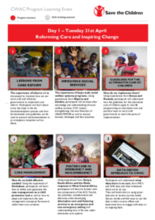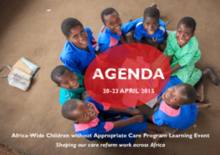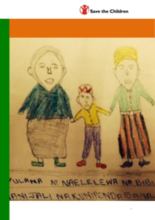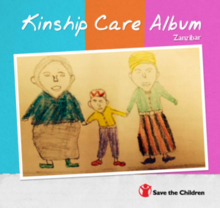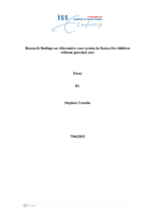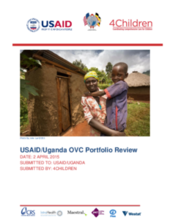Displaying 1141 - 1150 of 1617
This video briefly recaps the Africa-Wide Children without Appropriate Care Program Learning Event hosted by Save the Children in Addis Ababa, Ethiopia, on 20-23 April 2015.
This presentation provides an overview of the status of care reform efforts in Africa. It identifies where care reform is underway as well as areas in which reform is still needed. The presentation looks ahead to what is needed to accelerate the momentum on care reform in the region.
This presentation was delivered at the Africa-Wide Children Without Appropriate Care Program Learning Event: “Shaping our care reform work across Africa,” held in Ethiopia on 20-23 April 2015. It provides an overview of the Tracking Progress Initiative, which includes the development of a tool to measure country progress in implementing the Guidelines for the Alternative Care of Children.
Various stakeholders, including Better Care Network, met at an Africa wide Program Learning Event on 20-23 April 2015, organized by Save the Children, under the theme “Shaping our care reform work across Africa,” which brought together country, regional and global experts.
This document provides an overview of the topics covered in the various sessions during the three-day program learning event “Shaping our care reform work across Africa,” held in Ethiopia on 20-23 April 2015.
Various stakeholders, including Better Care Network, met at an Africa wide Program Learning Event on 20-23 April 2015, organized by Save the Children, under the theme “Shaping our care reform work across Africa,” which brought together country, regional and global experts. This document includes the agenda for the 3-day event.
Save the Children extended Kinship Care research begun in West Central Africa in 2012 across East Africa in 2014, and this paper presents the findings for Zanzibar.
This album is a compilation of information collected from children and young people during the Kinship Care research in Zanzibar by Save the Children.
This paper examines alternative care in Kenya. The focus will be on the genesis of alternative care; the non- prosaic multiple factors contributing to the situation, situational analysis on data, and child protection frameworks.
This portfolio review of OVC programming in Uganda focuses on several priority issues, including: (1) targeting case management and referral mechanisms; (2) graduation; (3) links with HIV/AIDS care and treatment partners; and (4) overall coordination amongst implementing partners.

